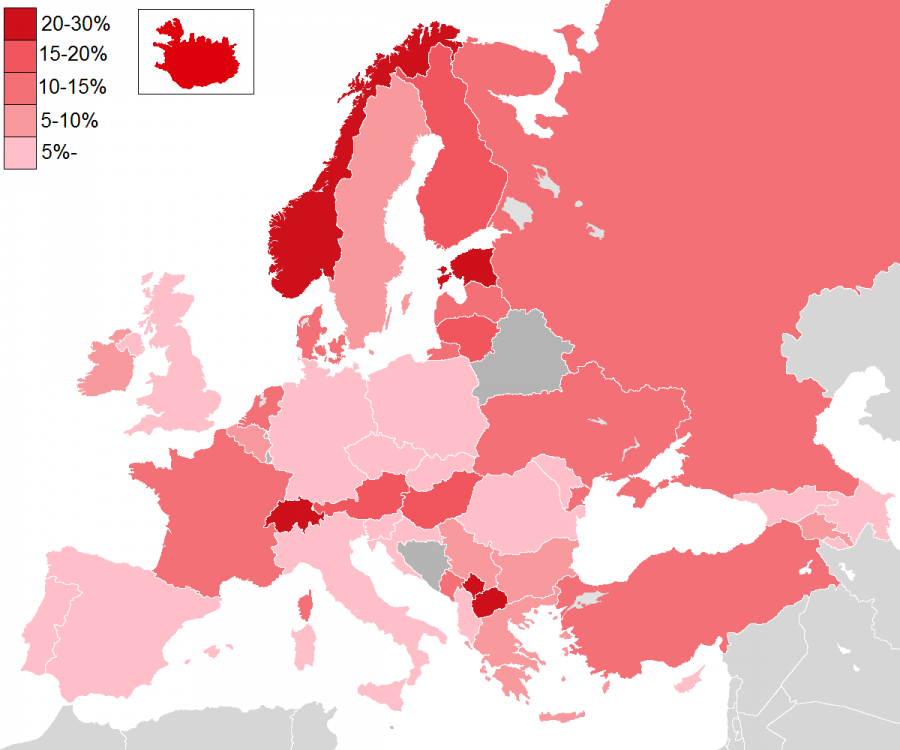
In July 2017, democracy came under attack in Poland when Law and Justice, or PiS, Poland's far-right party currently in government, attempted to pass legislation that would allow lawmakers to appoint their own members on the Council of the Judiciaries – effectively enabling the government to establish complete control over the country's courts.
Jaroslaw Kaczynski, head of the PiS, defended his party's bold power grab attempt by citing his personal experiences training as a lawyer in Poland during the Soviet era. According to his official statements, the bill would be a necessary first step toward excising the corrupt, unworkable elements of Polish law that have been carried over from Communism.
However, given that Poland transitioned peacefully to a democratic system after the collapse of the USSR, Kaczynski's point was quickly rendered moot. Even U.S. President Donald Trump, who lauded the PiS's policies during his recent visit to Warsaw, made no mention of the repressive legislation – a sign of either his ignorance or his own disagreement with its implementation.
European Union member states openly condemned the attack on Polish democracy, threatening the country with immediate legal action if the legislation is put into practice. Frans Timmermans, the first vice-president of the E.U., even hinted that Brussels was dangerously close to triggering for the first time Article 7, a measure that would strip Poland of any voting rights within the council of ministers and effectively force the country out of the Union.
That would also result in the freezing of any E.U. funds intended for Poland, since the country would be failing the Union's standards with regard to the rule of law. Given the very poor reception and disastrous aftermath of Brexit, Timmermans feared that such a contingency could harm the Polish people. According to a statement made by an anonymous official in the Polish government: "If mass firing of judges starts, then a red line is crossed where all dialogue will need to be declared as failed."
What ended up finally foiling the PiS's plans, however, didn't come from interference abroad; instead, it was the deluge of Polish protests that happened after President Andrezj Duda signed the legislation. From Warsaw to Lublin and all across the country, protesters gathered in the thousands for eight straight days. As with the Black Protests that shook Poland earlier this year, people came together once again to call for "Freedom, Equality and Democracy".
In the end, Duda conceded, vetoing the proposed legislation. In an official statement, he declared: “I have decided to send back to parliament – in which case to veto – the law on the supreme court, as well as the law on the National Council of the Judiciary.”
The turn of events once again proved the effectiveness of Polish protestors in bringing their message across. But it was also cause for others to speculate on a possible split within the governing party. Since assuming office, Duda was largely treated as an extension of Kaczynski. Now, it appears to some that the PiS might be attempting to turn over a new leaf.
Impacts on Europe
The latest Polish controversy, despite its seeming optimistic outcome, is a byproduct of a much larger, more alarming wave of rightest policies that are sweeping across Central Europe. In Hungary, Slovakia and the Czech Republic, right-wing populist groups are increasingly rising to power. Aided by the ongoing financial crisis within the Union and the countries' shared Communist past, which contributed to an isolationist way of thinking, nationalists are slowly but surely making their way into positions of power.
Resistance to such regimes, however, is becoming increasingly more effective as people become more educated about the politics steering their nations astray. In Hungary, a wave of protests has begun to put Viktor Orban's administration under pressure following the Hungarian government's attempt to shut down Central European University (CEU). While the government originally cited that it made its decision in order to combat "unfair competition" with Hungarian Universities, the Hungarian premier has often vilified George Soros, chief backer of the CEU, as a proponent of "harmful, multiculturalist migration policies" that would harm the current government's nationalist agenda.
The public's response to government overreach, with Hungarian and Polish protestors shouting "Europe!" at the top of their lungs during rallies, is an indication that political change – and resistance – is taking place in Central Europe. On the surface it would appear that the allure of isolationist governments has begun to fade as the harsh realities of the political climate grip the continent. Once again, the countries of the former Eastern Bloc are being thrust into a rapidly changing world, even as the E.U. experiences an unprecedented, explosive demographic shift.
While it is too early to predict an outcome, one thing seems certain: the future of the continent rests in the hands of an educated populace that is eager to learn whatever it can from the mistakes of the past.
3 WAYS TO SHOW YOUR SUPPORT
- Log in to post comments















